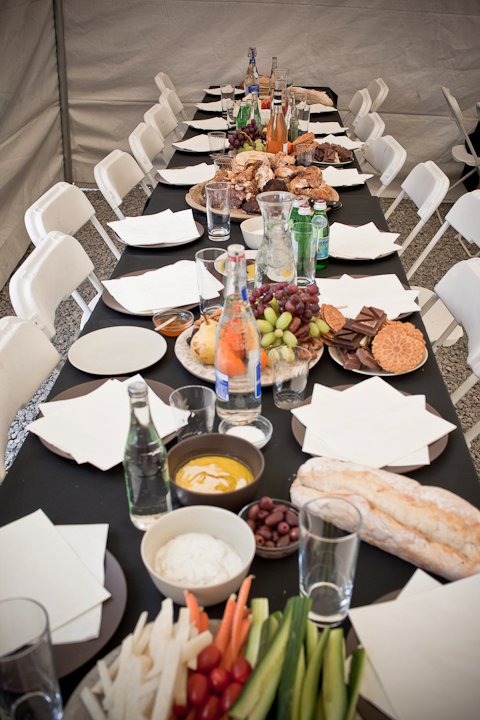Ask the Missional Pastor: #2
New churches are one of the most effective ways to reach people with the gospel. However, we should not assume that evangelism will automatically happen in every church plant. We’ve asked some of our lead planters how their churches are living missionally and how they are training their people to think missionally.
How do you envision your people living “on mission” in your city?
Kyle Costello, Missio Dei Community Church:
The simple vision for living with and serving our neighbors is wrapped up in our Celebrate and Serve concept (more on that later). This is part of our core idea that we are to love God, love others, make disciples, celebrate His kingdom, and join Him in the in-breaking of His kingdom.
Chris Travis, Everyday Church:
We're creating networks of faith families on mission. We want to see God working powerfully through everyday people who live out their faith every day.
Justin Anderson, Redemption Church:
We orient everything we do around the idea “Live on Mission. Make Disciples. Train Leaders.” Nothing about that statement is particularly interesting or revolutionary, which is probably a good thing. We talk a lot about those ideas, we structure our staff and ministry around them, and even keep strict reins on growth if we think it will hinder our ability to do those three things well.
Our vision is to bring Heaven to earth. Just as Jesus destroyed the barrier between heaven and earth, we know He will work through us to destroy the political, ethnic, social, and economic barriers in Washington D.C.
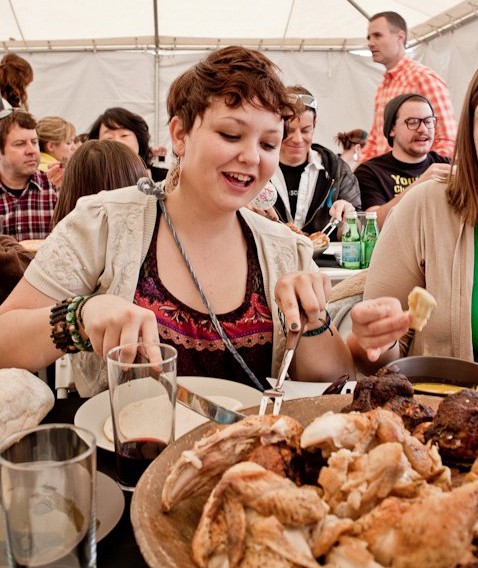
What are the challenges of training people to see themselves as missionaries?
Chris Travis:
Whether you're leading an established community or trying to plant a new one, living missionally needs to be a constant emphasis. It feels like everything in me and around me is constantly conspiring to make me focus on myself. I need my faith family to constantly remind me about the bigger picture. We all do. So I think in either context, it just needs to be constantly prayed for, taught, envisioned, celebrated, pointed out, etc.
Kyle Costello:
I don't think there is a challenge for us to see ourselves as missionaries, but there is an absolute challenge in acting on it. Our culture is addicted to talking and talking and talking. People tend to get hesitant when real accountability enters the picture. For the first few years, I naively thought all of our talk would lead to action. It didn't.
Aaron Thomas:
People in Washington D.C. are very compartmentalized. Political activities, family, career, and faith are intentionally separated from each other. So getting people to relationally "let you in" is a challenge. Teaching people to let Jesus reign in each of these areas, so that they can be missionaries, takes the challenge to a whole new level. Our people realize we need to "Go and make disciples," not stay and make them come to us!
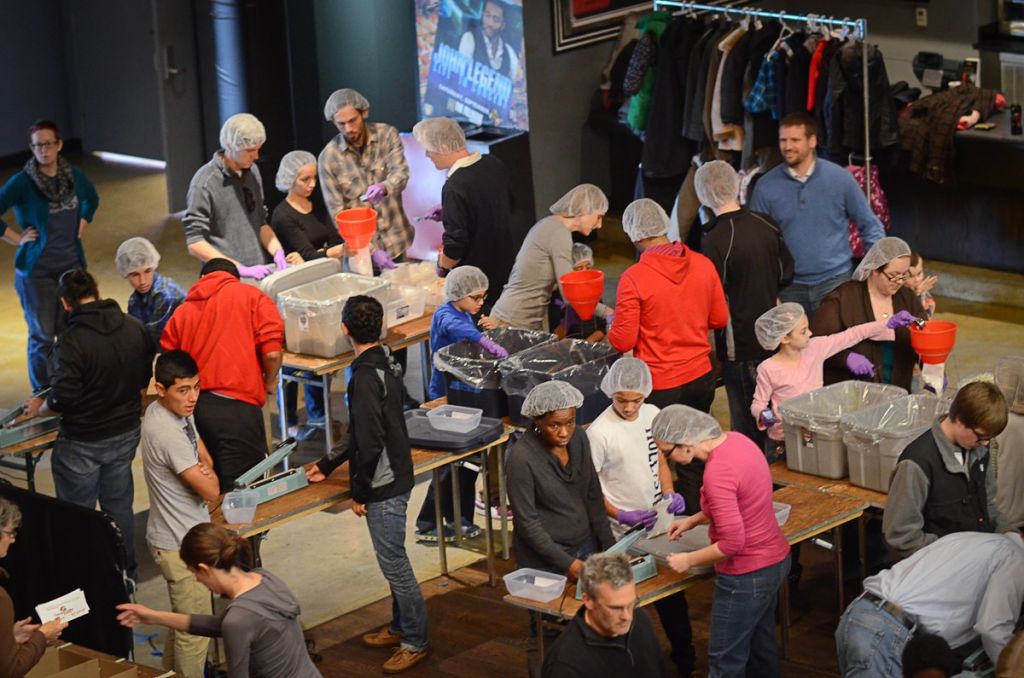
How do you train your volunteers to be “on mission?”
Kyle Costello:
We set the expectation to be on mission and then we train as we go. We see God's active love ultimately looking like sacrifice and service. We ask the same from our people. Practically we do this through either a Serve or a Celebrate engagement.
In Celebrate events, each House Church is challenged to celebrate the reality that God's kingdom is here. They are to party well and invite all of their neighbors regardless of race, religion, income level, etc. We also encourage folks to share their faith one-on-one at the event.
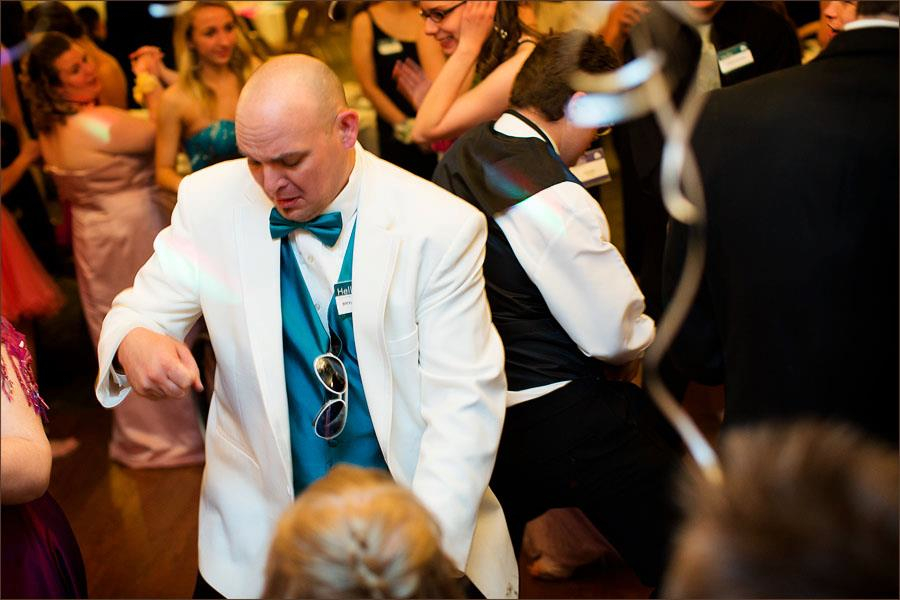
In our Serve events each HC is challenged to serve and love the neighborhood they are a part of; to join God in the continual in-breaking of His kingdom. This is done in the smallest of ways—gathering shoes and warm clothing for the winter—to larger ways such as community garden projects or taking on a financial responsibility for a family in the community.
Aaron Thomas:
We organize our community groups around mission. We call them Missional Communities (MC). They consist of approximately 20-50 people and are similar in size to an extended family. Each MC focuses on bringing Heaven to one particular part of the earth.
Within our MCs, we have specific Discipleship Huddles of about 10-12 people. These Huddles serve as our training ground for our MC Groups. Each Huddle is led by Pastors and Leaders who have completed a Discipleship Huddle.
Justin Anderson:
We talk about Proactive and Reactive Mission. Proactive mission is being aware of the people and opportunities where God has placed us, and intentionally reaching out so that people can see and hear about the Kingdom in our lives. We encourage our people to proactively choose several people, places and opportunities they can think creatively about and pray for.
Reactive mission is the 1 Peter 3:15 idea of being ready to give an account for the hope we have. We want to prepare people's minds to be able to speak intelligently about their faith and to do so confidently and graciously.
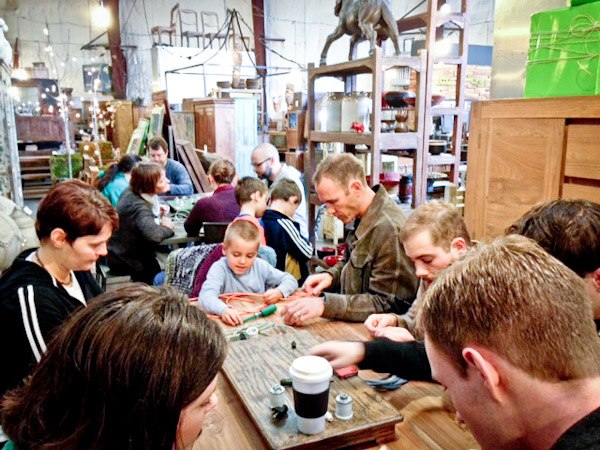
How do you see your people participating and living out the mission of the church?
Chris Travis:
One of the things we say over and over is "bring others along." Whatever you're doing: meeting with your Everyday Group, throwing a party, serving somewhere in the neighborhood, or just going to the movies—bring someone along. What really warms my heart is the way our people respond when someone does bring someone else along. There's a culture of warm welcome that's really cool to see. We don't need an intricate outreach follow-up system, because you're not gonna leave one of our gatherings without having two (or twelve!) different people come up to you and introduce themselves and get to know you better. It's one of my favorite things, to look across the room and see a new person being so well cared for and included.
Kyle Costello:
Red Light Outreach is a group of women who weekly walk two areas of town that are famous for prostitution. They offer everything from a conversation to methadone treatment. They have rented hotels so the women can shower and relax and they have taken their new friends to medical clinics. I recently met with a woman who had been beaten for 19 years by her ex-husband and is now trying to make a life on her own. I asked if she had friends or advocates and the first people she mentioned were the ladies from Red Light Outreach. When she found out I knew all of them she was ecstatic!
Thanks to our pastors Kyle Costello, Chris Travis, Justin Anderson and Aaron Thomas for sharing their experience.
Do you have any questions about what makes a missional community? Let us know on facebook or twitter. What would you like to ask a missional pastor?
